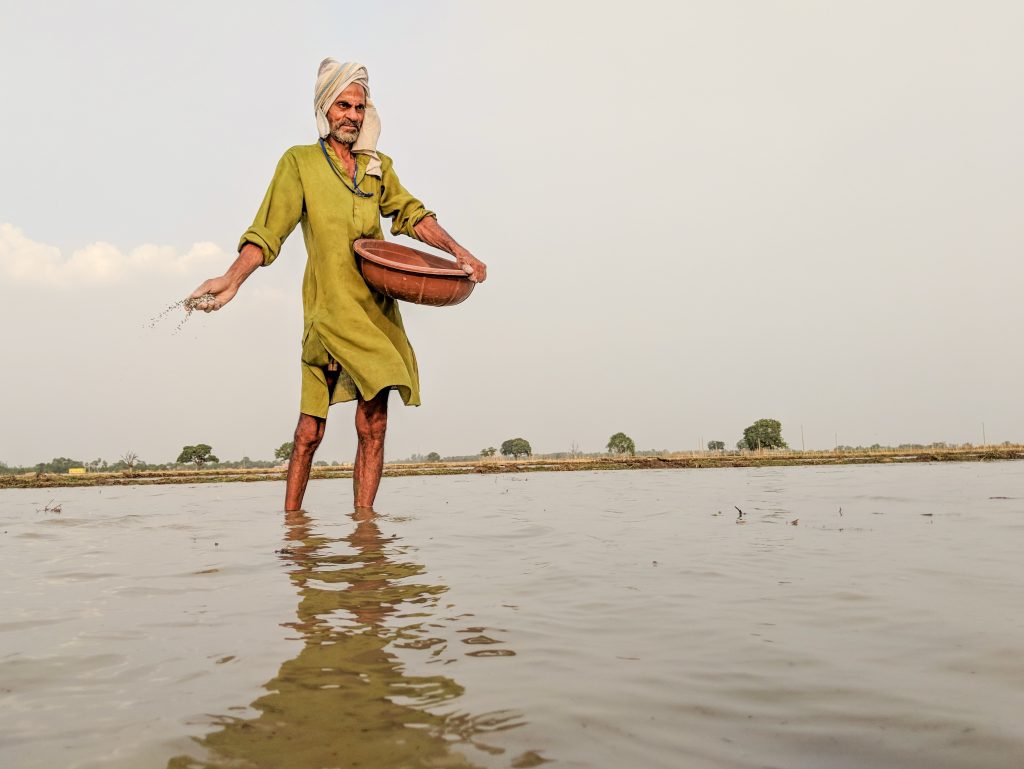Imbalanced application of different plant nutrients through fertilizers is a widespread problem in India. The major reasons are lack of adequate knowledge among farmers about the nutritional requirement of crops, poor access to proper guidelines on the right use of plant nutrients, inadequate policy support through government regulations, and distorted and poorly targeted subsidies.
This context makes it necessary to foster innovation in the fertilizer industry, and also to find innovative ways to target farmers, provide extension services and communicate messages.
A dialogue on “Innovations for promoting balanced application of macro and micro nutrient fertilizers in Indian agriculture” facilitated discussion on this issue. Representatives from key fertilizer industries, state governments, research institutions and the Indian Council of Agricultural Research gathered in New Delhi, India, on December 12, 2018. This dialogue was part of the Cereal Systems Initiative for South Asia (CSISA) and was organized by the International Food Policy Research Institute (IFPRI) and the International Plant Nutrition Institute (IPNI).
The Director General of the Fertilizer Association of India (FAI), Shri Satish Chander, pointed out that new-product approvals in India take approximately 800 days. However, he explained, this delay is not the biggest problem facing the sector: other barriers include existing price controls that are highly contingent on political myths.
IFPRI researcher Avinash Kishore presented evidence contradicting the myth that farmers are highly sensitive to any price change. He presented data demonstrating that farmers’ demand for Urea and DAP remained highly price inelastic during periods of steep price increases, in 2011 and 2012.
The Director of the South Asia Program at IPNI, T. Satyanarayana, highlighted the importance of micronutrients in promoting balanced fertilization of soils and innovative methods for determining soil health.
Andrew McDonald, from the International Maize and Wheat Improvement Center (CIMMYT), presented the new Soil Intelligence System for India, which employs innovative approaches to soil health assessments.
Farmers’ representative Ajay Vir Jakhar elaborated on the failure of underfunded extension systems to reach and disseminate relevant, factual and timely messages to vast numbers of farmers.
Other representatives from the fertilizer industry touched upon the need to identify farmer requirements for risk mitigation, labor shortages and site-specific nutrient management needs for custom fertilizer blends. Participants also discussed field evidence related to India’s soil health card scheme. Ultimately, discussions held at the roundtable helped identify relevant policy gaps, which will be summarized into a policy brief.
Vartika Singh is a Program Manager for the Cereal Systems Initiative for South Asia project, in the Environment, Production and Technology Division at IFPRI.
The Cereal Systems Initiative for South Asia project is led by the International Maize and Wheat Improvement Center (CIMMYT) in partnership with the International Rice Research Institute (IRRI) and the International Food Policy Research Institute (IFPRI). It is funded by the U.S. Agency for International Development (USAID) and the Bill & Melinda Gates Foundation.This article was originally published on the CIMMYT blog.







